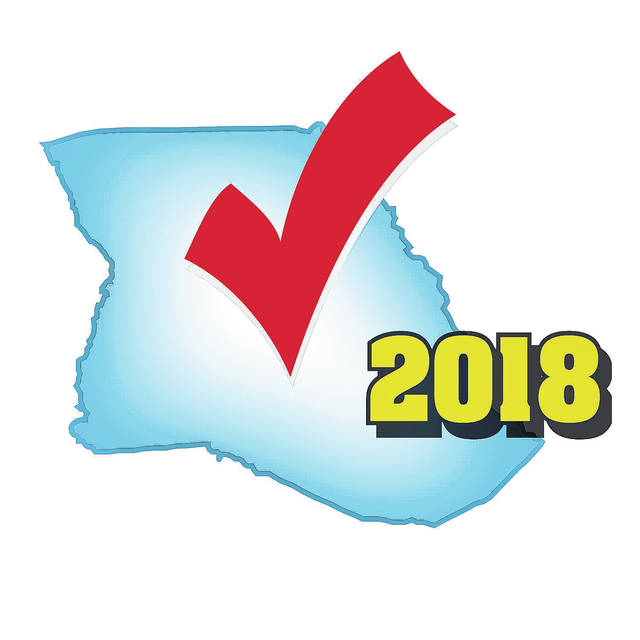RALEIGH — A very close North Carolina congressional race still hasn’t been settled almost a month after Election Day, amid an investigation into alleged absentee ballot fraud that has raised questions about the credibility of the tallied outcome.
The state elections board and prosecutors are focusing on Bladen County in the 9th Congressional District, where unofficial results show the Republican with a narrow lead over the Democrat. But the board hasn’t finalized the results, citing the potential mail-in ballot irregularities.
The board is meeting later this month to hear evidence, but it’s unclear whether the race will be settled then. A new election early next year is possible, as is a temporary vacancy when Congress convenes Jan. 3.
How we got here
When the State Board of Elections and Ethics Enforcement met Nov. 27, it was supposed to sign off on the results of about 1,300 state and local elections, as it usually does shortly after Election Day.
But the board voted unanimously to delay the results of the 9th District, which comprises all or parts of eight counties in the south-central part of the state, and provided few details why. Republican Mark Harris led by 905 votes over Democrat Dan McCready, who had already conceded.
Board investigators later confirmed they were interested in “potential irregularities involving absentee ballots” in the district and Bladen County ballots, in particular.
The board met again last Friday and voted 7-2 to hold an evidentiary hearing on or before Dec. 21.
What’s being investigated?
The question of whether political operatives violated state elections law in Bladen County dates back at least two years to a narrowly decided race in which Democrat Roy Cooper ousted incumbent Gov. Pat McCrory.
The state prosecutor who normally handles criminal cases involving state government said this week that she expanded an investigation of potential Bladen County “voting irregularities” during 2016 to include this year’s primary and general elections.
At issue is who can handle completed ballots. North Carolina law allows only a family member or legal guardian to drop off absentee ballots for a voter. The reasoning behind the law is that it limits others from influencing a homebound voter’s choices. California is one state that allows anyone — including political operatives — to collect and turn in a ballot for a voter.
In affidavits offered by the state Democratic Party, some Bladen County voters have described that people came to their homes to collect their absentee ballots, whether or not they had been fully completed or sealed in an envelope to keep them from being altered.
The investigation seems to center on the get-out-the-vote activities of McCrae Dowless, who worked as a contractor for Harris’ chief campaign strategist and who once served prison time for felony fraud.
State elections board documents show Dowless collected the most absentee ballot requests in Bladen County. Investigators are looking into whether Dowless or people working with him handled actual ballots and why an unusually high percentage of absentee ballots weren’t returned.
What could the board do?
The board could certify the current results that make Harris the winner. The board is unlikely to declare McCready the winner barring clear evidence that he received more votes overall.
Under the current nine-member board, it would take five members to call for a new 9th District election, which wouldn’t happen until early next year.
State law says a new election can be called if the board determines “eligible voters sufficient in number to change the outcome of the election were improperly prevented from voting” or if “irregularities or improprieties occurred to such an extent that they taint the results of the entire election and cast doubt on its fairness.”
The 9th District seat would likely be vacant if there’s still no winner by the start of the next congressional session. The term of Rep. Robert Pittenger, who lost to Harris in last May’s primary, will end at the close of this month’s session.
What can Congress do?
Members of Congress, especially Democratic House leaders, could ultimately keep Harris from taking his seat unless questions surrounding his election are resolved. Incoming Majority Leader Rep. Steny Hoyer of Maryland said Tuesday that Harris was “not eligible for being sworn into the House” and would have to wait until North Carolina elections officials resolve that point.
The U.S. Constitution states that the House is the judge of the “elections” and returns” of its members and the final arbiter of contests.
The losing candidate in the state’s final race count can contest the outcome within 30 days by filing a notice with the U.S. House clerk, according to a report by the nonpartisan Congressional Research Service. That prompts a series of legal filings leading to what’s similar to a court hearing before the House Administration Committee. The committee then can make recommendations on which candidate should be seated.


